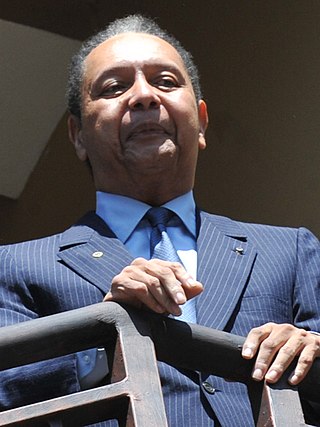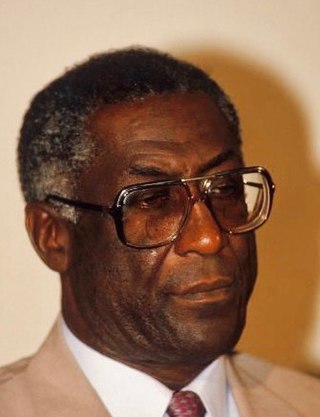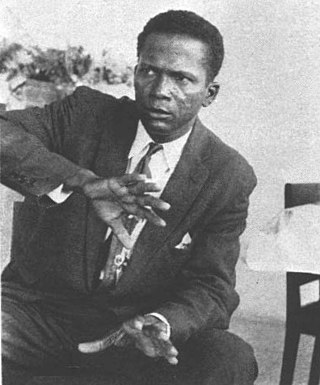Gerald Drew | |
|---|---|
| Inspector General of the Department of State | |
| In office November 13, 1960 –May 31, 1962 | |
| President | Dwight D. Eisenhower John F. Kennedy |
| Preceded by | Raymond Miller |
| Succeeded by | Norris Haselton |
| United States Ambassador to Haiti | |
| In office May 15,1957 –July 16,1960 | |
| President | Dwight D. Eisenhower |
| Preceded by | Roy Davis |
| Succeeded by | Robert Newbegin |
| United States Ambassador to Bolivia | |
| In office December 8,1954 –April 6,1957 | |
| President | Dwight D. Eisenhower |
| Preceded by | Edward Sparks |
| Succeeded by | Philip Bonsal |
| Director General of the Foreign Service | |
| In office March 30,1952 –October 18,1954 | |
| President | Harry S. Truman Dwight D. Eisenhower |
| Preceded by | Richard P. Butrick |
| Succeeded by | Raymond A. Hare |
| United States Envoy to Jordan | |
| In office February 24,1950 –February 25,1952 | |
| President | Harry S. Truman |
| Preceded by | Wells Stabler (Acting) |
| Succeeded by | Joseph Green |
| Personal details | |
| Born | June 20,1903 San Francisco,California,U.S. |
| Died | September 27,1970 (aged 67) Lewes,Delaware,U.S. |
| Resting place | Rock Creek Cemetery Washington,D.C.,U.S. |
| Education | University of California,Berkeley (BA) |
Gerald Augustin Drew (June 20,1903 - September 27,1970) was a career Foreign Service Officer for the United States.
Born in San Francisco,California,Drew was a graduate of the University of California,Berkeley where he was a member of Phi Kappa Tau. He served as U.S. Vice Consul in Pará,1929;Envoy to Jordan,1950–52;Ambassador to Bolivia,1954–57;Ambassador to Haiti,1957–60. [1] He was assigned to Haiti by the Dwight D. Eisenhower administration at the beginning of the regime of François Duvalier. He criticized the Duvalier government,and Duvalier requested his removal,but this was rejected by Christian Herter. [2]
He died at Lewes,Delaware and is buried at Rock Creek Cemetery,Washington,D.C.
The recorded history of Haiti began in 1492, when the European captain and explorer Christopher Columbus landed on a large island in the region of the western Atlantic Ocean that later came to be known as the Caribbean. The western portion of the island of Hispaniola, where Haiti is situated, was inhabited by the Taíno and Arawakan people, who called their island Ayiti. The island was promptly claimed for the Spanish Crown, where it was named La Isla Española, later Latinized to Hispaniola. By the early 17th century, the French had built a settlement on the west of Hispaniola and called it Saint-Domingue. Prior to the Seven Years' War (1756–1763), the economy of Saint-Domingue gradually expanded, with sugar and, later, coffee becoming important export crops. After the war which had disrupted maritime commerce, the colony underwent rapid expansion. In 1767, it exported indigo, cotton and 72 million pounds of raw sugar. By the end of the century, the colony encompassed a third of the entire Atlantic slave trade.

Jean-Bertrand Aristide is a Haitian former Salesian priest and politician who became Haiti's first democratically elected president. A proponent of liberation theology, Aristide was appointed to a parish in Port-au-Prince in 1982 after completing his studies to become a priest. He became a focal point for the pro-democracy movement first under Jean-Claude "Baby Doc" Duvalier and then under the military transition regime which followed. He won the 1990–91 Haitian general election, with 67% of the vote. As a priest, he taught liberation theology and, as a president, he attempted to normalize Afro-Creole culture, including Vodou religion, in Haiti.

François Duvalier, also known as Papa Doc, was a Haitian politician who served as the president of Haiti from 1957 until his death in 1971. He was elected president in the 1957 general election on a populist and black nationalist platform. After thwarting a military coup d'état in 1958, his regime rapidly became more autocratic and despotic. An undercover government death squad, the Tonton Macoute, indiscriminately tortured or killed Duvalier's opponents; the Tonton Macoute was thought to be so pervasive that Haitians became highly fearful of expressing any form of dissent, even in private. Duvalier further sought to solidify his rule by incorporating elements of Haitian mythology into a personality cult.

Jean-Claude Duvalier, nicknamed "Baby Doc", was a Haitian politician who was the President of Haiti from 1971 until he was overthrown by a popular uprising in February 1986. He succeeded his father François "Papa Doc" Duvalier as the ruler of Haiti after his death in 1971. After assuming power, he introduced cosmetic changes to his father's regime and delegated much authority to his advisors. Thousands of Haitians were killed or tortured, and hundreds of thousands fled the country during his presidency. He maintained a notoriously lavish lifestyle while poverty among his people remained the most widespread of any country in the Western Hemisphere.

Matthieu Prosper Avril is a Haitian political figure who was President of Haiti from 1988 to 1990. A trusted member of François Duvalier's Presidential Guard and adviser to Jean-Claude Duvalier, Lt. Gen. Avril led the September 1988 Haitian coup d'état against a transition military government installed after Jean-Claude Duvalier's 1986 overthrow. He was President until March 1990, in a period which according to Amnesty International was "marred by serious human rights violations". He was arrested in 2001, but released in March 2004 after the 2004 Haitian coup d'état overthrew Jean-Bertrand Aristide.

The Comedians (1966) is a novel by Graham Greene. Set in Haiti under the rule of François "Papa Doc" Duvalier and his secret police, the Tontons Macoutes, the novel explores political repression and terrorism through the figure of an English hotel owner, Brown.
Haitian Canadians are Canadian citizens of Haitian descent or Haiti-born people who reside in Canada. As of 2016, more than 86% of Haitian Canadians reside in Quebec.

Marc Louis Bazin was a World Bank official, former United Nations functionary and Haitian Minister of Finance and Economy under the dictatorship of Jean-Claude Duvalier. He was prime minister of Haiti appointed on June 4, 1992, by the military government that had seized power on September 30, 1991.
Jean-Fernand Brierre was a Haitian poet, dramatist, journalist, and diplomat. He is recognized "as one of the most brilliant Haitian writers," and has produced a significant body of poetry to his credit. He also served as Haiti's ambassador to Argentina.

Antonio Thrasybule Kébreau was Chairman of the Military Council that made him provisional head of state of the Republic of Haiti from 14 June – 22 October 1957. His short reign followed that of Daniel Fignolé and preceded that of François Duvalier. During his rule, soldiers under Kébreau's rule massacred several hundreds, if not several thousand rioting Fignolé supporters.

Pierre-Eustache Daniel Fignolé was a Haitian politician who became Haiti's provisional head of state for three weeks in 1957. He was one of the most influential leaders in the pre-Duvalier era, a liberal labor organizer in Port-au-Prince so popular among urban workers that he could call upon them at a moment's notice to hold mass protests, known as "woulo konpresè"—Haitian Creole for "steamroller."
Jeune Haiti was a group of Haitian exiles active in New York during the 1960s. In 1964 they launched an unsuccessful attempt to overthrow the regime of François Duvalier, also known as Papa Doc.

Haiti–United States relations are bilateral relations between Haiti and the United States. Succeeding U.S. presidents refused to recognize Haiti until Abraham Lincoln. The U.S. tried to establish a military base in Haiti and invaded. It withdrew in 1934 but continued to intervene in Haiti during subsequent decades.
Raymond Alcide Joseph is a Haitian diplomat, journalist, political activist and author. He was the Haitian ambassador to the United States from 2005 to 2010, and he resigned to be considered for candidacy in the 2010 Haitian presidential election. He is founder of the largest Haitian newspaper Haïti Observateur, based out of Brooklyn, New York, that circulates not only for the Haitian diaspora but in Haiti as well. He infamously ran an informant operation of sources surrounding, in, and out of the presidential palace in Haiti during the Duvalier authoritarian years, that leaked information for him to report, all while avoiding an attempt on his life.

Roger Lafontant was the former leader of the Tonton Macoutes and a former minister in the government of Haitian dictator Jean-Claude Duvalier. He was the leader of an attempted coup d'état in January 1991, an effort which ultimately led to his death.

Haiti was one of the original members of the League of Nations, and was one of the original members of the United Nations and several of its specialized and related agencies. It is also a founding member of the Organization of American States. Haiti also has diplomatic relations with the Republic of China, commonly known as Taiwan, instead of the People's Republic of China. Taiwan is one of Haiti's major trading partners and the two countries maintain very friendly relations. Haiti has also re-established very warm relations with Cuba in which a major act of bilateral cooperation has resulted in Cuba's large contribution of doctors to the country. The Haitian government has publicly shown admiration to Fidel Castro and his administration.
Robert Newbegin II was an American diplomat. Born in Bangor, Maine, he was raised in Cambridge, Massachusetts and graduated from Yale University. He entered the Foreign Service in 1929 and served in Berlin, Montevideo, Mexico City, Istanbul, Ankara, Santo Domingo, Bogota and Paris, as well as Washington. He was appointed a Foreign Service inspector in 1952, director of the Office of Middle American Affairs in the State Department in 1954 and Deputy Assistant Secretary of State for personnel in 1956.

The Anti-Duvalier protest movement was a series of demonstrations in Haiti from 23 May 1984 to 7 February 1986 that led to the overthrow of President Jean-Claude Duvalier and the Duvalier dynasty regime and the readoption of the original flag and coat of arms of the country.
Charles Obas was an early-twentieth-century painter of Haitian art.

The Duvalier dynasty was an autocratic hereditary dictatorship in Haiti that lasted almost 29 years, from 1957 until 1986, spanning the rule of the father-and-son duo François and Jean-Claude Duvalier.